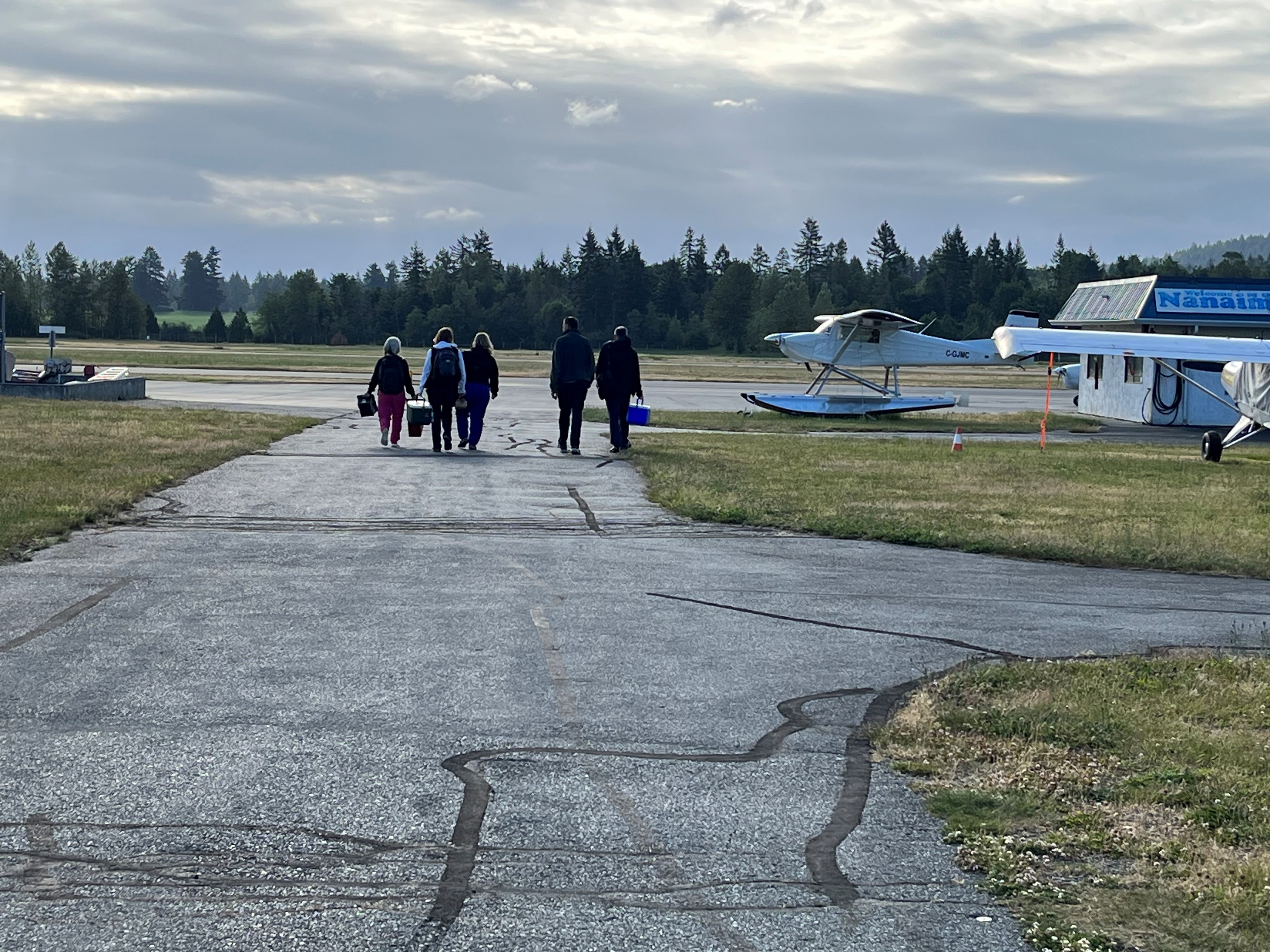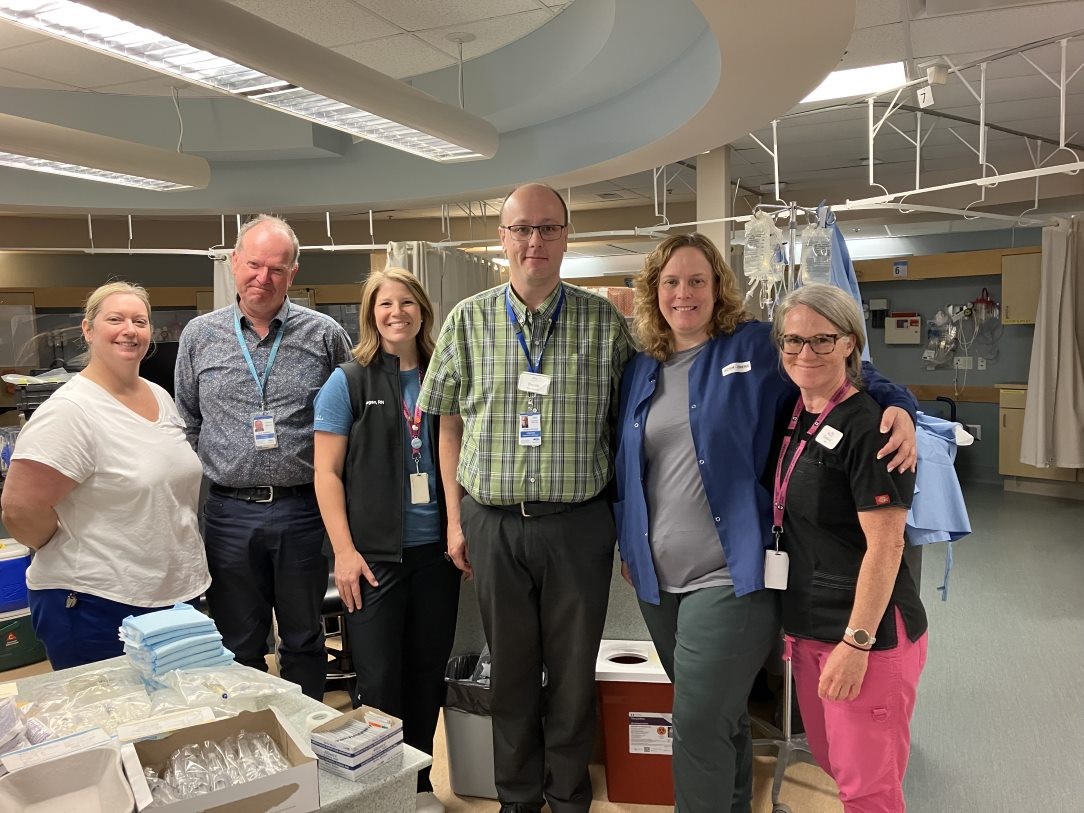The impact of the Cameron Lake wildfires and resulting Highway 4 closure on people living and working in Port Alberni, Tofino and other nearby communities has been immense, including those requiring specialized cancer care. Despite being cut off from the critical medical services they needed, the devoted cancer care teams at Nanaimo Regional General Hospital (NRGH) and BC Cancer – Victoria jumped into action to ensure cancer patients got the care they needed.
“Cancer patients do not have the option of delaying treatment for natural disasters, whether it be pandemics, fires, or flooding,” said Dr. Jason Hart, medical oncologist at BC Cancer – Victoria. Hart worked closely with staff at NRGH to identify patients living on the west coast that needed access to lifesaving cancer care.
For Port Alberni resident, Iain Hay, the disconnect caused by the highway closure really hit home. Iain travels to NRGH three times a month to receive chemotherapy for multiple myeloma.
“The cancer located in my plasma cells will require a lifetime of treatment, so when the highway was closed for an undetermined amount of time I was quite stressed about how my treatment was going to continue,” Hay said.
What happened next, a testament to the close collaboration between Island Health and BC Cancer – Victoria, can only be described as a herculean effort to provide patients with the care they needed. Through tireless work, creative problem solving, and a commitment to providing the best patient care possible, BC Cancer – Victoria and Island Health staff pulled together to create a ‘pop up’ chemotherapy clinic at West Coast General Hospital (WCGH) to ensure impacted patients in Port Alberni, Tofino and nearby communities could get the treatments they needed.

Health care staff boarding the plane, supplies in hand to deliver care to patients
Kari O’Hara, a Clinical Nurse Leader at NRGH, said that when the call went out for help, everyone stepped up to make it happen.
“We had a physician and three chemo-trained nurses raise their hands to help support the clinics in Port Alberni, and other employees stepped in to fill the gaps when they were away,” O’Hara said. “The logistics were challenging. Chemotherapy medicine can be extremely difficult to transport. They had to be pre-mixed and packed into coolers in order to be transported safely, and additional supplies packed. Patient prep was another key priority. There were lab requisitions to order, and patients needed to be informed and scheduled. Even the patient charts had to be copied because their physical charts couldn’t be sent due to the plane’s weight restrictions. It was an immense undertaking by our whole cancer care team."
“The challenges involved in providing alternative chemotherapy services at a hospital that isn’t set up for cancer treatment were immense and only worked for very specific patients who could safely continue with their treatment,” O’Hara noted. “This was an emergency response and the right thing to do to get our patients the care they needed sooner. I’m really proud of the work our team accomplished.”
Welcoming Nanaimo Regional General Hospital team to West Coast General Hospital
Meghan Donoghue, a clerical supervisor with BC Cancer – Victoria went above and beyond to support patients. She came in on a Saturday to connect with affected patients who had been identified as being able to receive temporary treatment in Port Alberni rather than Nanaimo.
“Our patients were thrilled and relieved to have the stress of a treatment delay, or the uncertainty of a long and arduous traffic detour lifted,” Donoghue shared. “This was a great collaboration between Island Health and BC Cancer and was far more than just cancer treatments being given in a different location. It is an example of teamwork at its finest.”
“Stress doesn’t help cancer so I was so relieved to receive a call from the cancer team at NRGH to schedule my treatment in my own hometown,” said Hay. “Now that is service!”

